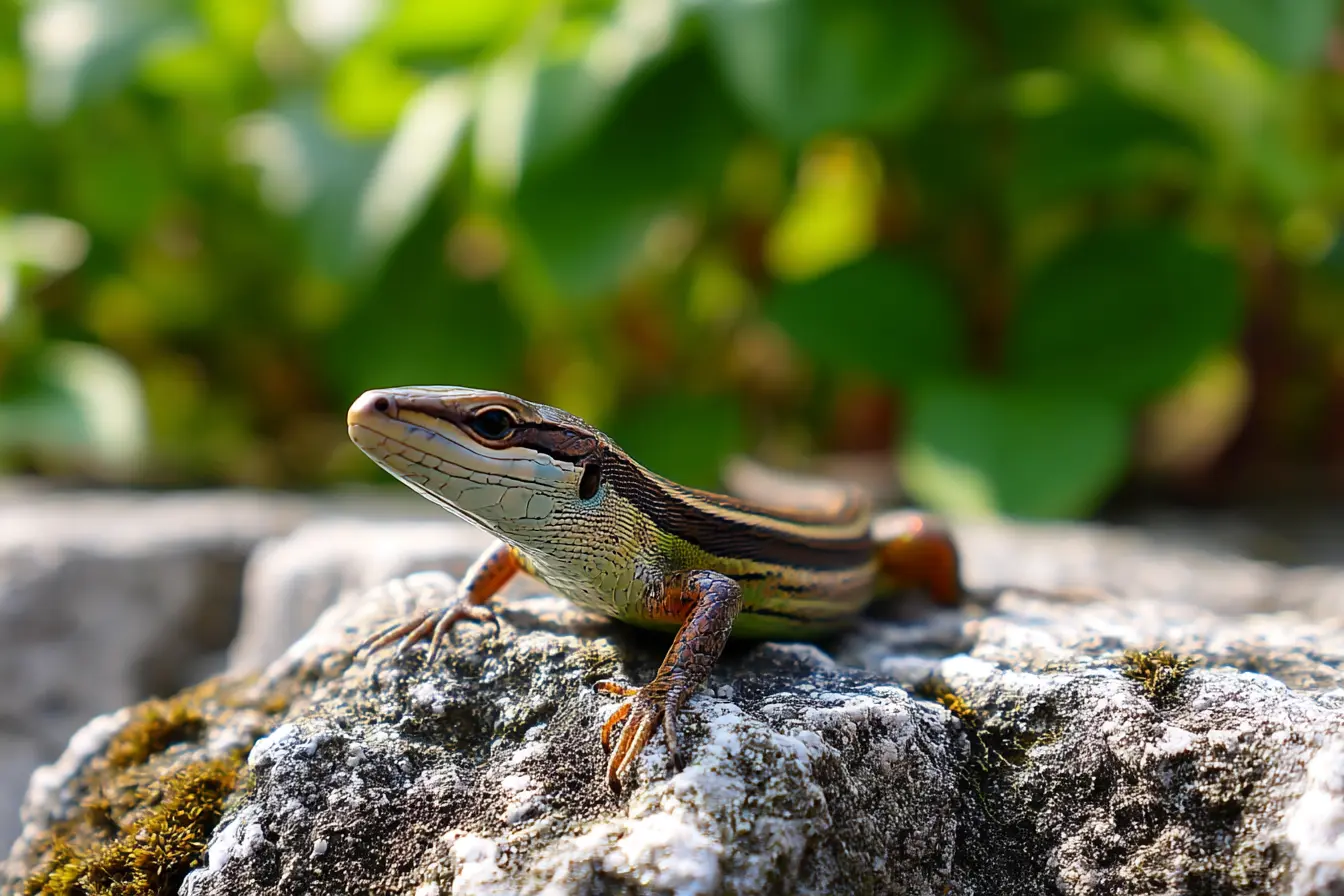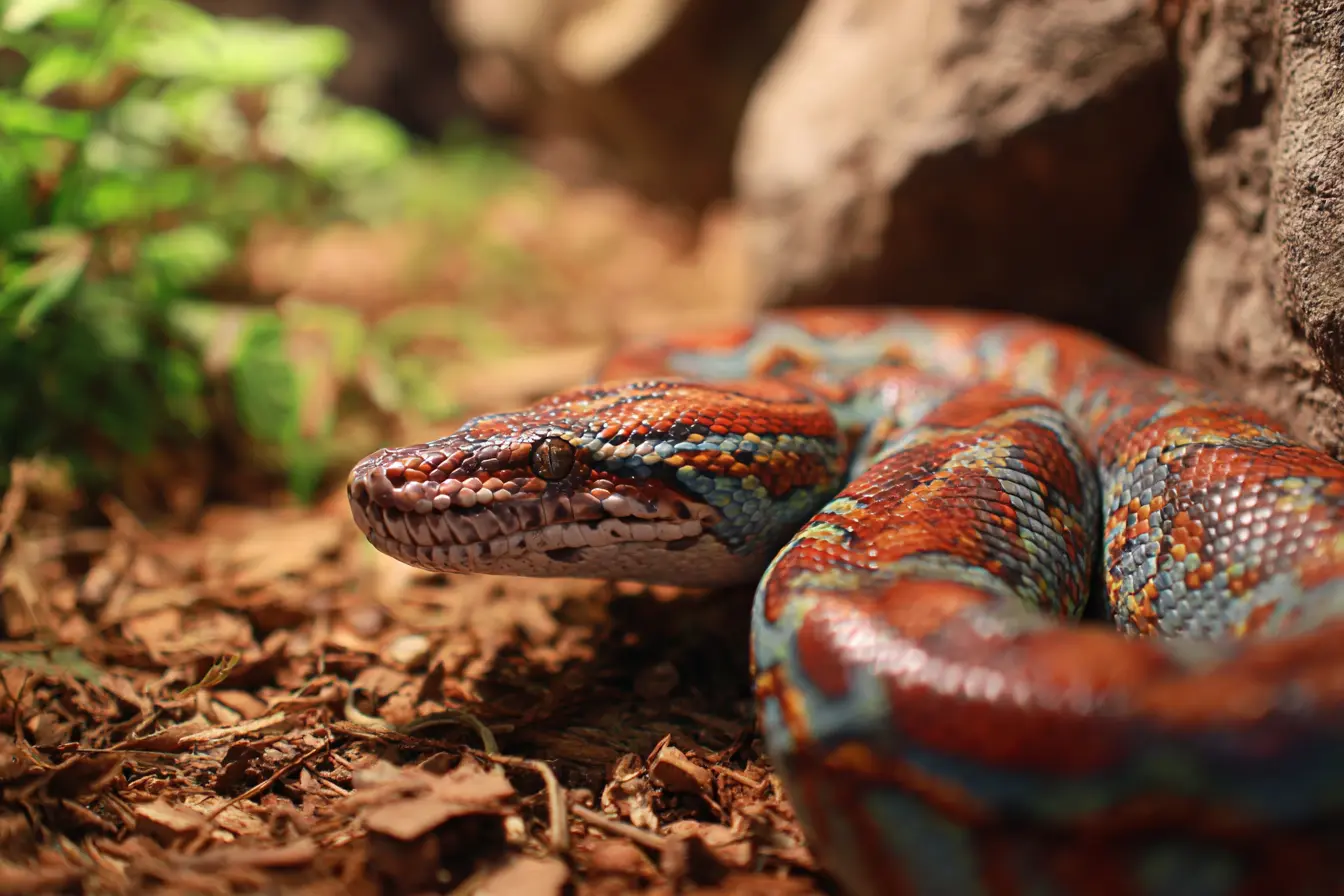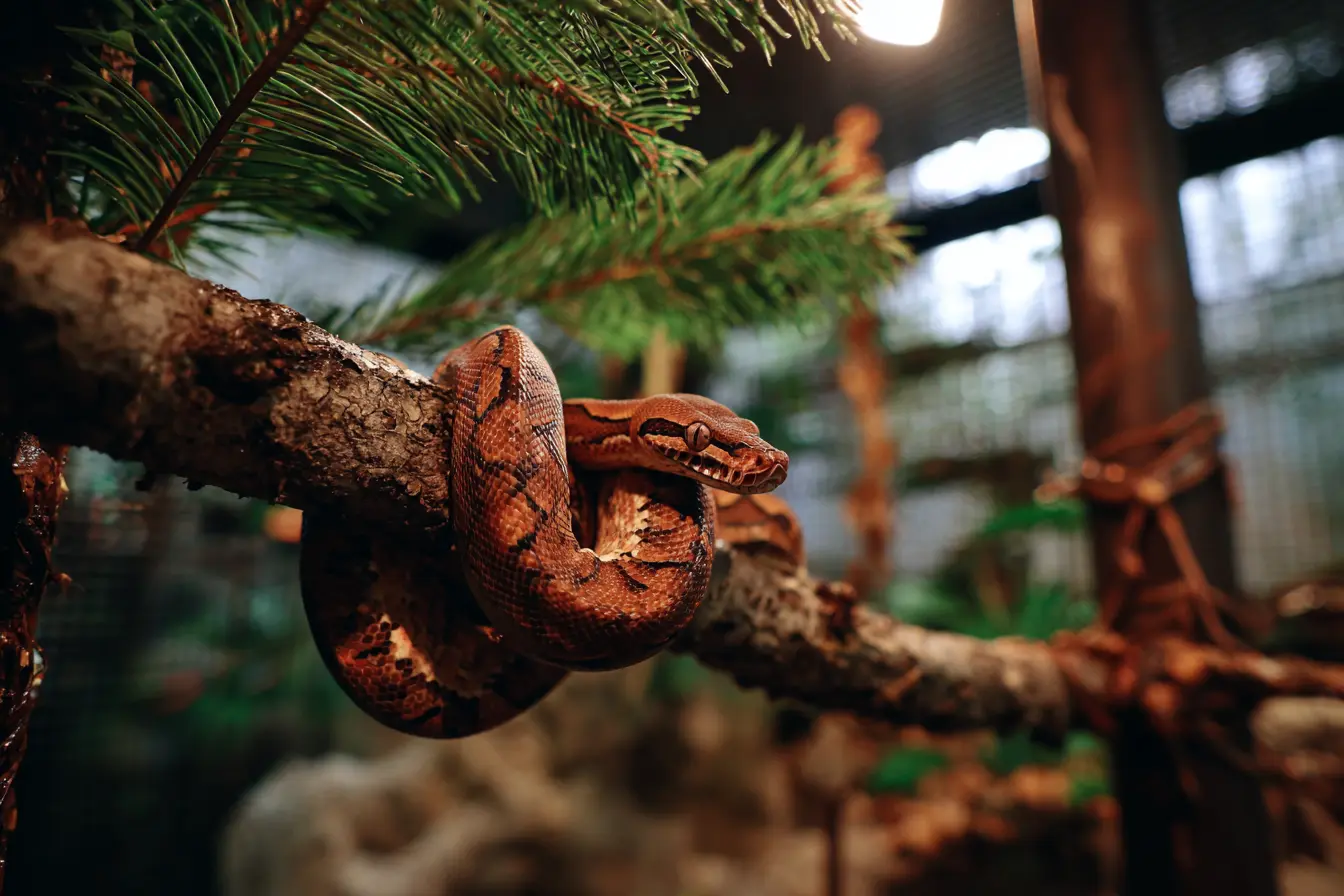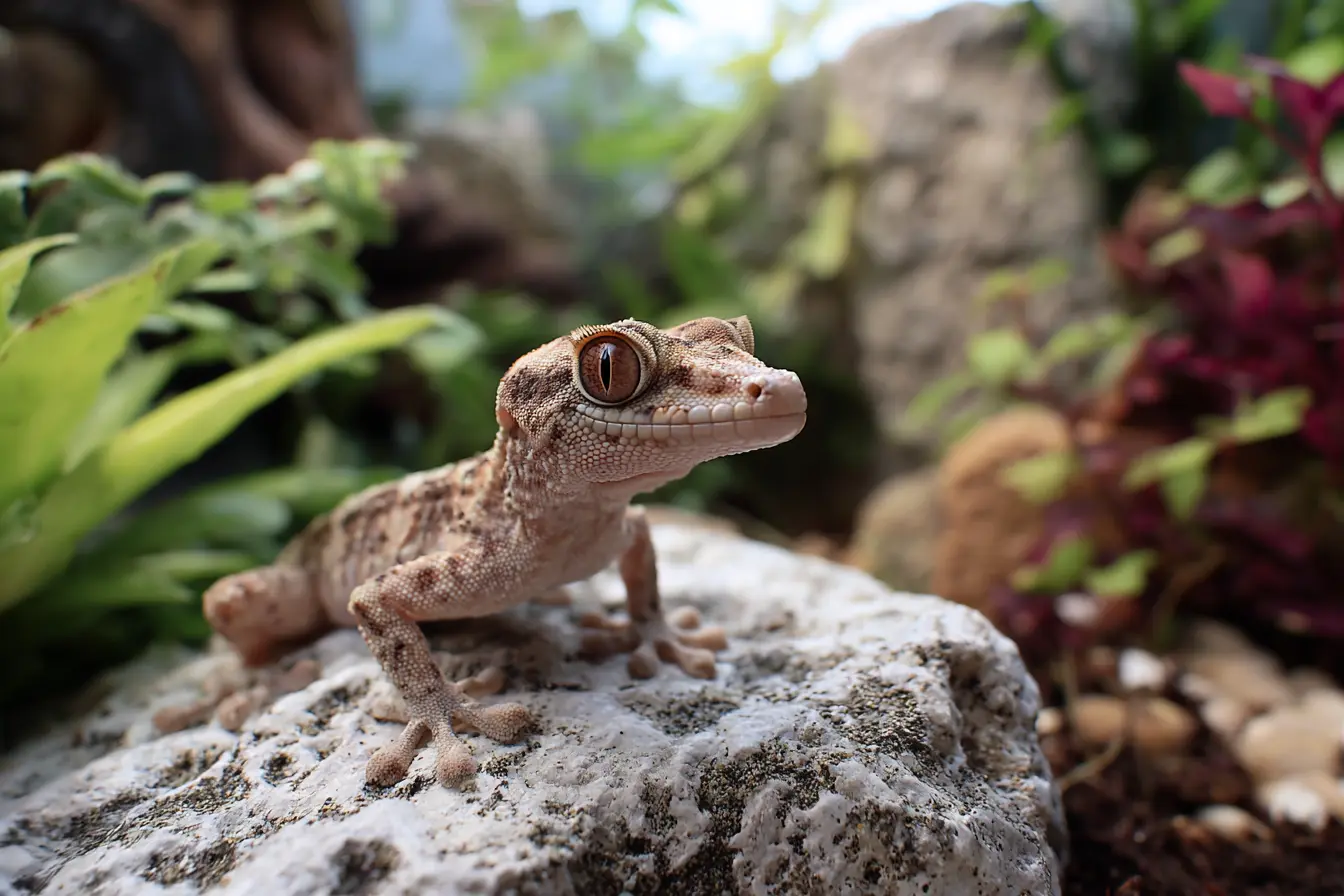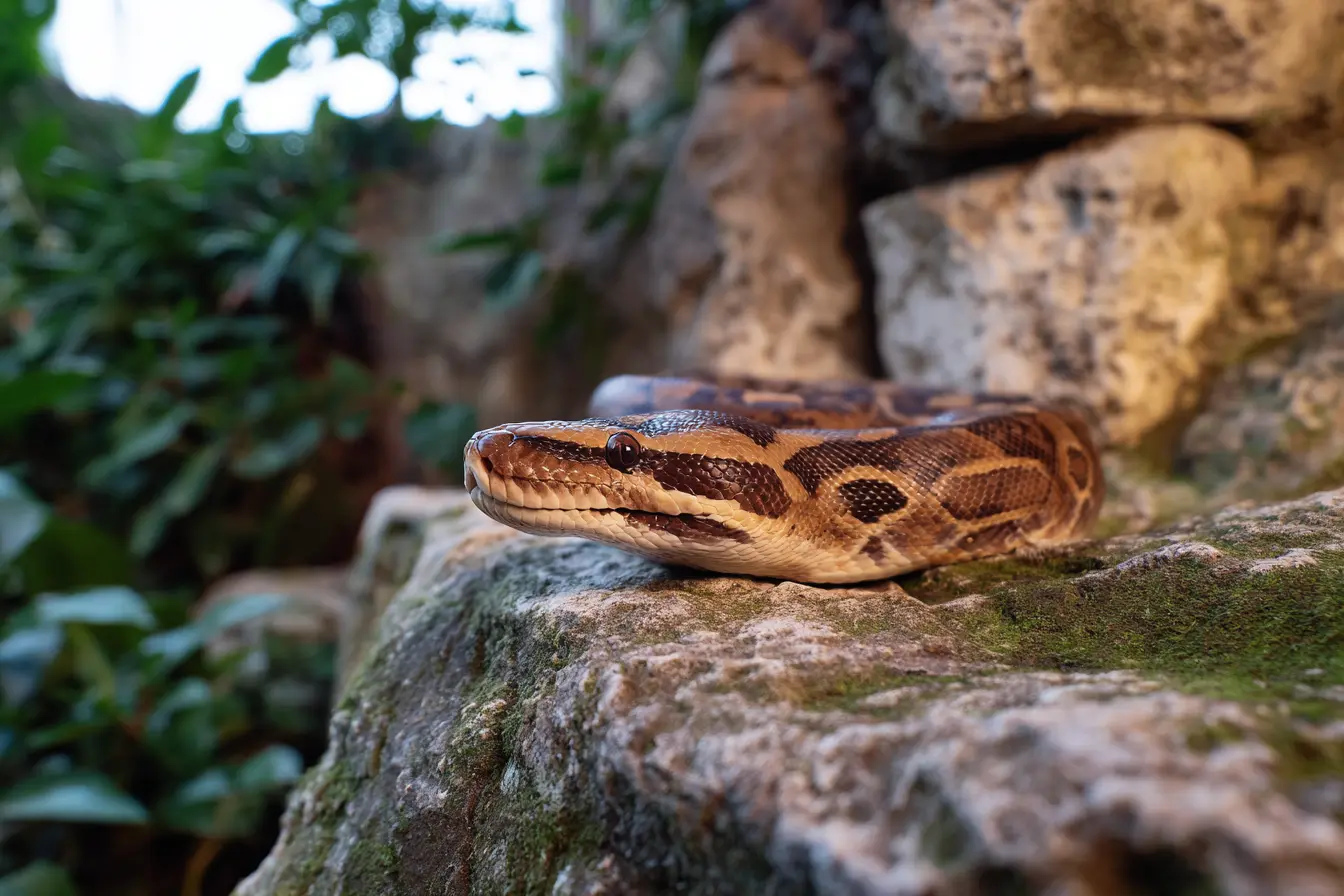
Considering an Angolan Python? What You Need to Know Before Bringing One Home
The Angolan python is a rare gem in the reptile world — striking in appearance, gentle in temperament, and surprisingly manageable in size. Often overshadowed by its more famous cousin, the ball python, the Angolan python offers a rewarding experience for dedicated keepers. If you're considering bringing one into your home in the UK, here's a complete guide to help you prepare for responsible ownership.
Introduction to Angolan Pythons
Angolan pythons (Python anchietae) are native to southern Africa, specifically Angola and Namibia, where they inhabit rocky outcrops and arid savannahs. They are a close relative of the ball python and share a similar body shape and manageable size, usually reaching 1.2 to 1.8 metres (4–6 feet) in length.
What sets the Angolan python apart is its unique appearance: glossy, beaded scales with intricate brown and tan patterning, giving it a somewhat armoured look. Despite their rarity, they are renowned for their calm and inquisitive nature, making them an excellent choice for experienced and beginner keepers alike.
Legal Requirements in the UK
No Licence Needed
The Angolan python is not listed under the Dangerous Wild Animals Act 1976. Therefore, you do not need a special licence to keep one in the UK. However, you must still ensure that your pet is housed humanely, and that it comes from an ethical, legal source.
Ethical Sourcing
Due to the species’ limited range and historical political instability in Angola, wild exports are virtually non-existent. Most Angolan pythons in the trade are captive-bred — and that’s exactly what you want. Ensure you purchase from a reputable breeder or dealer who can provide evidence of captive breeding and good animal welfare practices.
Setting Up the Ideal Habitat
Enclosure
- Size: A secure vivarium of 90 x 45 x 45 cm (3 x 1.5 x 1.5 ft) is suitable for an adult, though larger is always better for enrichment.
- Substrate: Aspen, cypress mulch, or coconut fibre all work well to mimic their natural habitat and allow for burrowing.
- Hides and Décor: Provide at least two snug hides (one on each end of the temperature gradient) and climbing branches or rocks to encourage natural behaviour.
Temperature & Humidity
- Temperature: Create a gradient from 26°C (79°F) on the cool side to around 32°C (90°F) on the basking side.
- Night Drop: A slight drop at night to around 22–24°C (72–75°F) is acceptable.
- Humidity: Maintain moderate humidity around 50–60%. Mist lightly if necessary, especially during shedding periods.
Diet and Nutrition
Angolan pythons are carnivores and follow a feeding regime similar to ball pythons:
- Feeding Frequency: Juveniles should be fed once every 5–7 days, and adults every 10–14 days.
- Prey: Appropriately sized rodents, such as mice and rats, are ideal. The prey should be no larger than the thickest part of the snake’s body.
- Feeding Method: Use tongs to offer pre-killed or frozen-thawed prey to prevent injuries and promote safety.
Health Considerations
Captive-bred Angolan pythons are generally hardy if their basic needs are met. Keep an eye out for:
- Respiratory infections from poor temperature regulation
- Shedding problems due to low humidity
- Mouth rot (stomatitis) if hygiene is neglected
Annual check-ups with an exotic pet vet and good husbandry will help ensure your snake remains in peak health.
Handling and Behaviour
Angolan pythons are known for their calm disposition and tolerance of handling. Unlike many other species, they rarely exhibit defensive behaviour when approached gently.
- Handling Tips: Begin handling gradually and regularly once the snake is established in its new environment. Use slow movements and support the body fully.
- Temperament: Most individuals are curious and docile, making them a pleasure to work with and ideal for reptile keepers who enjoy interaction with their pets.
Conclusion
The Angolan python is a beautiful and captivating species, ideal for those looking to own a rare but manageable snake with a gentle temperament. Their care needs are straightforward, and they thrive in captivity when given the proper attention. Whether you're an experienced reptile keeper or an ambitious newcomer, an Angolan python can be a fantastic and rewarding addition to your collection, provided you’re prepared to meet its needs responsibly.
Vets near you
Speciality vets
- Aquatics vet specialists
- Birds vet specialists
- Camelids vet specialists
- Cats vet specialists
- Cattle vet specialists
- Deer vet specialists
- Dogs vet specialists
- Equines vet specialists
- Exotic vet specialists
- Goats vet specialists
- Pigs vet specialists
- Poultry vet specialists
- Sheep vet specialists
- Small Mammals vet specialists
- Wild vet specialists
Vet facilities
- Accessible by public transport
- Blood testing
- Car park nearby
- Client car park
- Dentistry
- Diagnostic imaging
- Disabled public access
- Flea and worm treatments
- Microchipping
- Mobile services
- Neutering
- Open at weekends
- Out-of-hours service
- Referral interests
- Referrals only
- Street parking outside
- Toilets available
- Vaccinations
